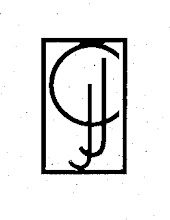The title of this post—Advance Reading Copy: Not For Sale—may be found on book covers inconspicuously printed as pictured or set in a mark or sticker (see below, left). It means what it says, too. These books aren’t for sale. They’re sent to early reviewers and promoters to initiate buzz on the book. Advance copies are almost always soft cover and distributed with a warning: Don’t quote or excerpt anything from this version. Corrections are still being made.
“What kind of corrections?” you may ask.
Well, it varies. Advance copies may contain erroneous facts, typos, misattributed or misquoted quotations; they may include information that’s later cut from the book or not include information that’s later added; they may be sequenced differently than the final publication. You never know. In the case of a book I read recently, I hope to goodness the final version is devoid of the plague of typos I found on EVERY SPREAD (a spread in this context is two facing pages). It read like raw manuscript rather than a nearly finished book. And it’s the reason I’m writing about advance copies today.
Though advance reading copies find their way into the general public, you should never see one on the shelf at your local bookseller. If you do, bring it to the attention of the manager—and the publisher if you’re so inclined. Typically, you’ll find advance reading copies at rummage sales or in charitable organizations (like the Salvation Army or a church), but unless the advance reading copy is vintage, I don’t like forking money over to an individual for it. I see it as breaching contract with the publisher. It especially peeves me when the seller is a used bookstore. But that’s just me. I’m not sure what commercial publishers think about such shenanigans.
 Sometimes, the path an advance reading copy takes from desk to sale is
accidental. When you’re culling books, it can be easy to miss that “NOT
FOR SALE” status on the cover and put the book in the wrong pile.
Sometimes, the path an advance reading copy takes from desk to sale is
accidental. When you’re culling books, it can be easy to miss that “NOT
FOR SALE” status on the cover and put the book in the wrong pile.HOWEVER. I unknowingly purchased an advance reading copy from a library sale last month. (I simply wasn’t paying attention.) For my purposes, I didn’t mind. I would be reading that particular book for pleasure—not for research purposes—and I would be donating to an organization whose funding was shrinking.
HOWEVER. This particular book hadn’t been donated to the library for the sale. It had been decommissioned by the library and put into the sale. Meaning it had once been in circulation at the library and was now removed from circulation. This was no mistake. Not only was it a flagrant disregard of the publisher’s intent, but it showed a lack of respect for library members. This was the book I mentioned earlier with typos on every spread. For someone with typo sensitivities like me, it makes for arduous and irritating reading. For someone with lower-level reading capabilities, the book can become challenging or impossible to complete—which, considering the subject matter, would be a shame because the content is otherwise entertaining and insightful. What’s more, though, because an advance reading copy may contain factual errors, it shouldn’t be trusted. And because the general public—especially children—trusts what’s on library shelves, an advance reading copy has no place there. It’s a tremendous disservice to mix advance reading copies with final printings.
If you see an advance reading copy on your local library’s shelf, please do everyone a favor and hand it over to a reference librarian. The folks in your community who suffer from typo sensitivities will appreciate it.
 * Addendum: Since writing the post above, I stopped at a national used-and-overstock bookstore four days ago. I quickly scanned titles in the animal section and chose a few I’d been wanting. I didn’t inspect the books—just the title and the price, which was decent but not the library-sale low of 50 cents and a dollar.
* Addendum: Since writing the post above, I stopped at a national used-and-overstock bookstore four days ago. I quickly scanned titles in the animal section and chose a few I’d been wanting. I didn’t inspect the books—just the title and the price, which was decent but not the library-sale low of 50 cents and a dollar. This morning I chose one of the books to begin reading. It’s about animal rescue work and ties in nicely with the book I just finished. As I usually do before beginning new content, I began studying the cover of the book, after which I normally read all the front matter, sometimes even the back acknowledgments and testimonials before finally reading the first page. But what do you suppose I saw that raised my blood pressure? Yes, small type at the bottom of the cover that reads:
ADVANCE READING COPY • NOT FOR SALE • ADVANCE READING COPY
The “NOT FOR SALE” phrase was blacked out, as it also was on the back cover. Twice.
My fault for not bothering to look at the cover before purchasing, but I never imagined that a large for-profit organization would stoop to selling advance copies.
On the other hand, maybe they didn’t stoop. Maybe someone there made the same mistake I did and hadn’t looked closely enough at the book before pricing it. I’ll find out, though, because I’d like to know where this particular bookstore stands on the ethics spectrum. I’ll let you know in a follow-up.
[Top pic from Light-skinned-ed Girl; next pic from The Oddness of Moving Things; bottom pic is the book I’m returning to the bookstore.]




No comments:
Post a Comment